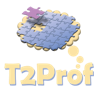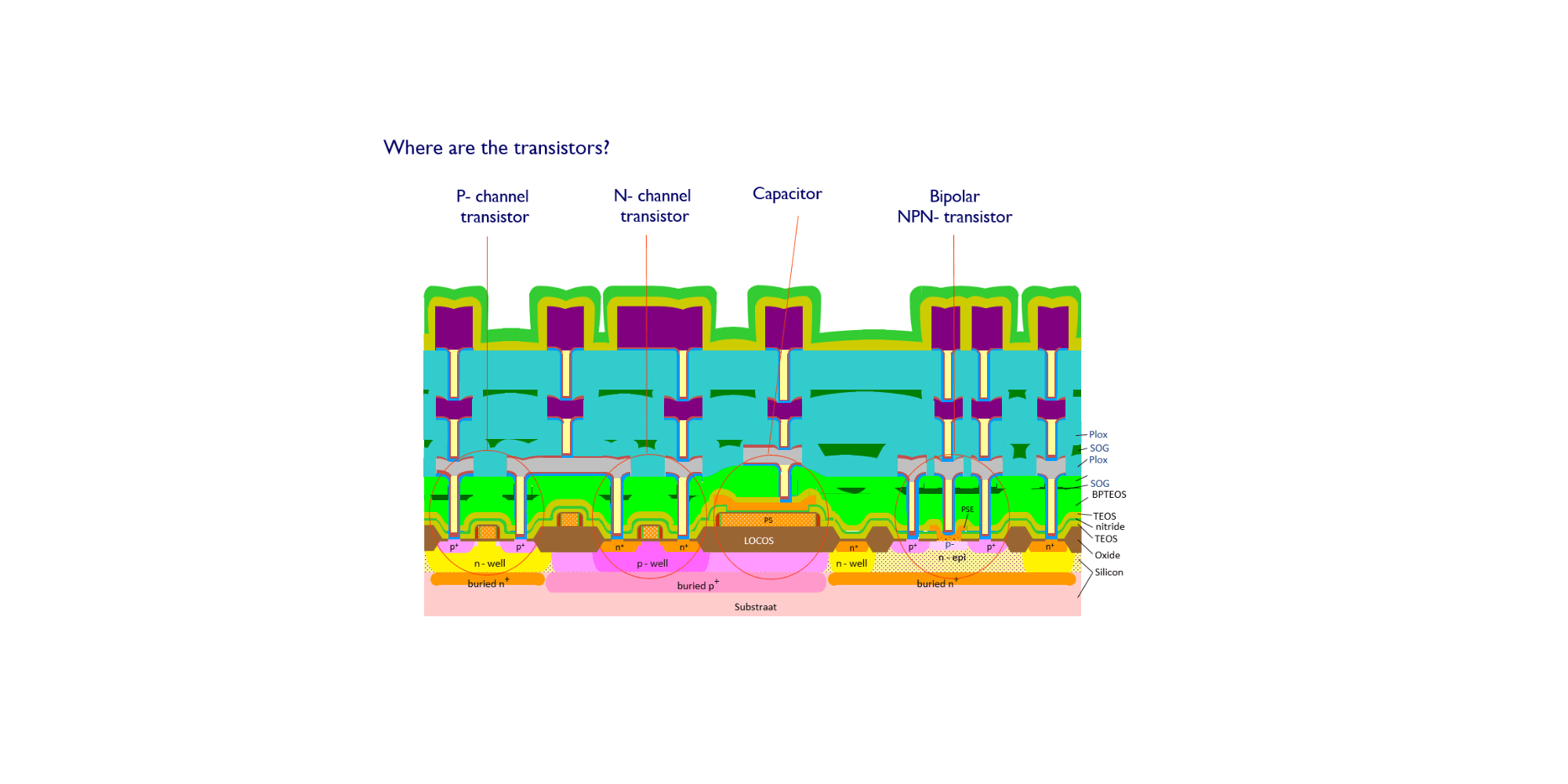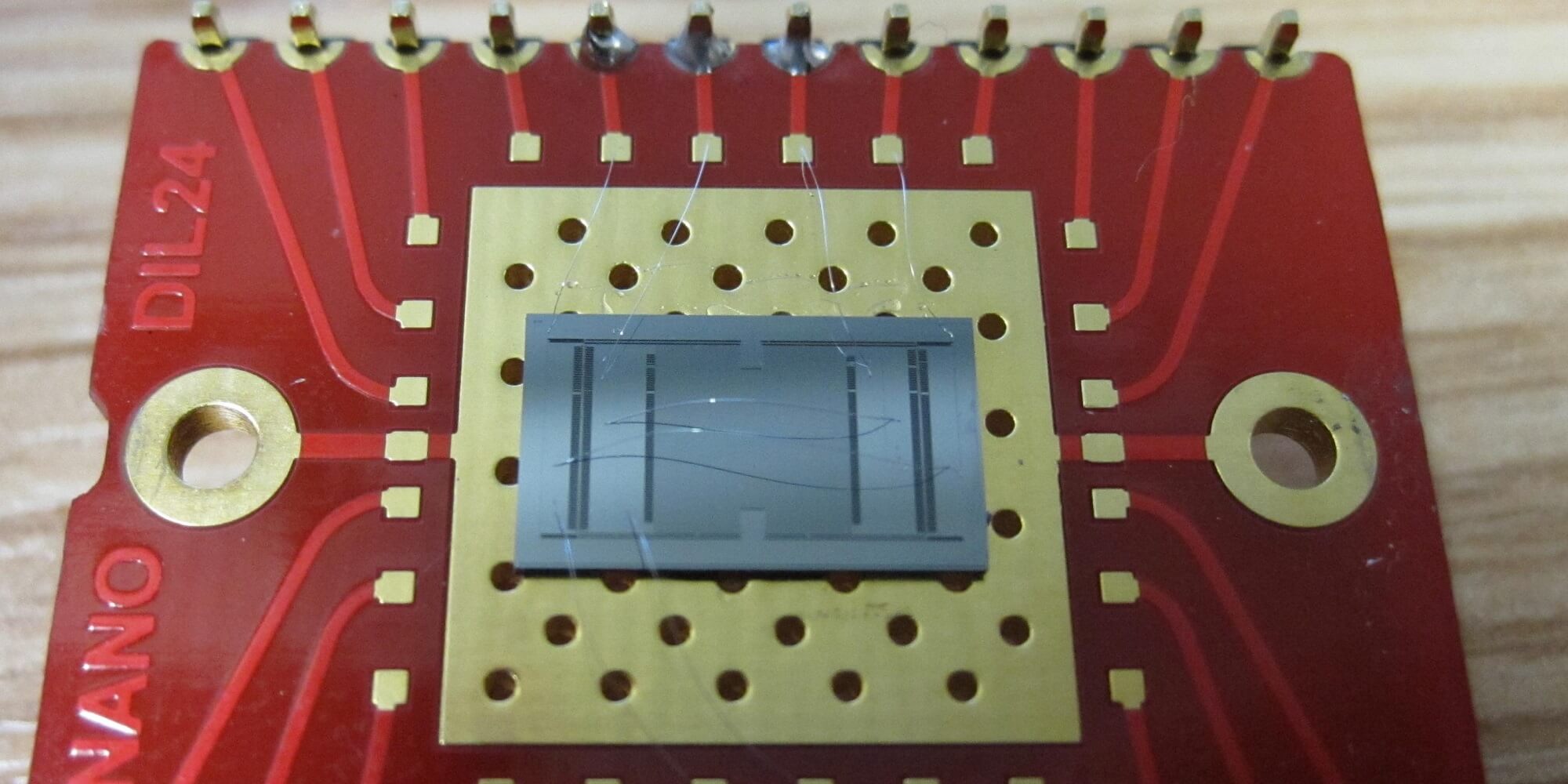Basic principles
MOS physics. Characteristics. Equations. Capacitances (short summary).
Geometry effects
Temperature behaviour. Subthreshold behaviour and leakage current mechanisms.
CMOS technology (including FinFet)
Lithography summary. Basic CMOS processing steps. From a basic nMOS process to a 22nm CMOS process.
CMOS design
Basic principles of electrical and logic design.
CMOS memories
Memory architectures, SRAM, DRAM, ROM, PROM, E(E)PROM (3-D), NAND- and NOR-flash memories, stand-alone and embedded memories.
VLSI and ASICs
Design flow. Hierarchy levels. IP cores. Re-use. ASICs.
Low-power / low leakage
Battery overview. Summary of existing technology and design options for low power and low leakage.
Robustness of ICs
Reliability and signal integrity issues. Latch-up, Punch-through, ESD protection circuits. Hot-carrier degradation. Electromigration. NBTI. Supply and substrate noise, power integrity, decoupling, cross-talk, noise margins, EMC, soft-errors and variability, etc.
Testing, debugging, failure analysis and yield, packaging
Testing. Basics of yield and simple model. Packaging characteristics and trends, Diagnosis techniques, state-of-the-art failure analysis techniques. Repair, focused ion beam, etc.
Scaling trends and roadblocks
Scaling towards 22nm technologies and beyond. Speed and power trends. Design, masks and processing costs. Roadblocks and solutions. End of Moore’s Law!



